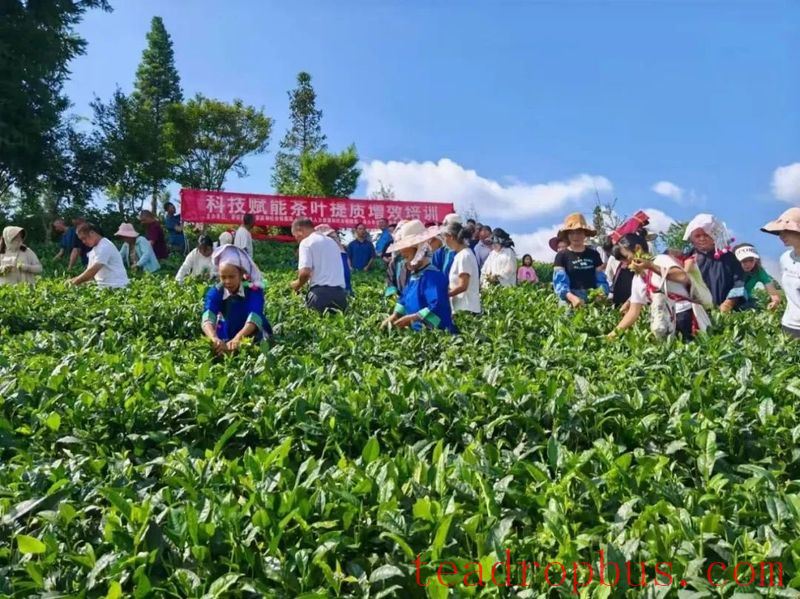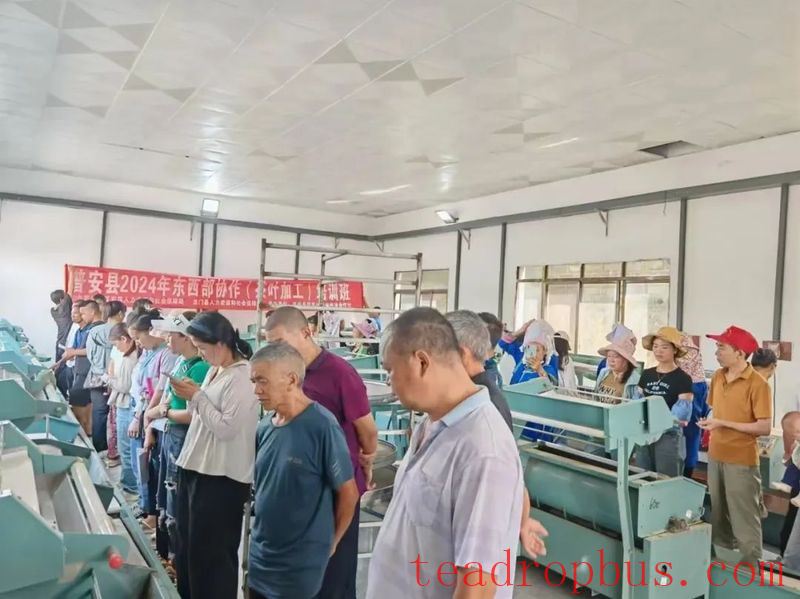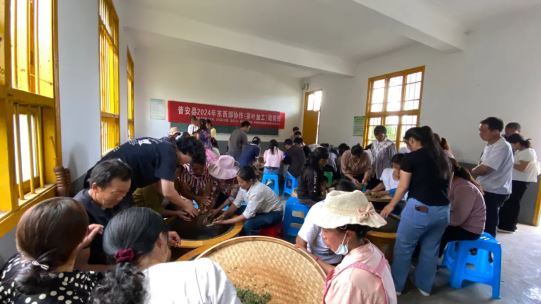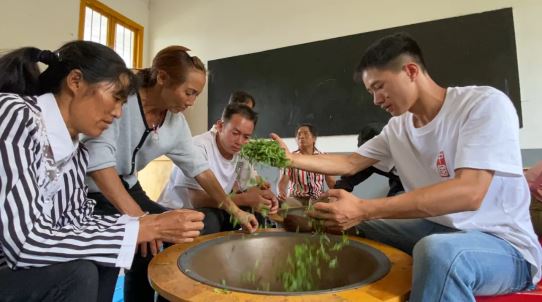Since late July 2024, Puan County has been delivering “on-site” training sessions in villages and communities with concentrated Tea industries across its townships and subdistricts. These nearby skills training sessions aim to help tea farmers improve their tea garden management and Tea processing skills, thereby promoting the high-quality development of Puan's tea industry and increasing rural household incomes. This round of training is part of a “short, flat, and fast” skills training project that will continue until the end of September. The county plans to train over 1,600 tea farmers, and so far, more than 150 have been trained.
Garden Management Training in the Tea Gardens
The tea industry is a pillar of Puan County's rural revitalization efforts, with tea garden areas expanding year by year and an increasing number of tea farmers. To assist these tea farmers in enhancing their tea garden management techniques, promote the green and healthy development of the county's tea industry, and achieve greater economic benefits, Puan County continues to conduct tea garden management training. Recently, in Lianmeng Village, a core production area of the county's tea industry, local tea farmers, with great interest, followed local tea enterprise “native” experts into the lush tea mountains. The experts explained and demonstrated, using simple and understandable language, key practices such as fertilizing tea gardens, pruning tea trees, pest and disease control, and fresh leaf picking, ensuring the tea farmers could understand and learn effectively. The farmers gathered closely, listened intently, and watched attentively, afraid not to miss a single word or detail.

Tea Processing Training Promotes Transformation
In response to many tea farmers who only know how to pick and sell fresh leaves, are unable to process dried tea, or lack strong tea processing skills, Puan County leverages opportunities from East-West cooperation. Multiple departments collaborate to fully integrate training funds and conduct tea processing skills training throughout the county, helping tea farmers master traditional handcrafted processing techniques for green and black teas as well as modern mechanical processing technologies. This enables them to transition sooner from selling fresh leaf raw materials to selling processed tea products, thus gaining more benefits from the tea industry. Inside the tea factories in Lianmeng Village of Chaoyuan Subdistrict and Gechuan Village of Luohan Town, the tea aroma is particularly strong, and the atmosphere is very intense. Tea processing experts meticulously explain the tea-making processes, teach tea farmers how to make tea step-by-step, and answer questions one by one. The tea farmers listen carefully and watch attentively, occasionally raising their hands to ask questions. Seeing the dried tea they have processed themselves fills them with joy and a sense of accomplishment.


Tea farmer Jia Chaoren said, “My family grows tea. Previously, I only picked tea and sold it to manufacturers; I didn't know how to process tea. This is my first time learning about tea processing, and I never knew there were so many steps involved. I'm grateful for such good policies allowing us to participate in such useful training. In the future, I can process tea myself.”
Tea farmer Wang Wenlian said, “My family also grows a lot of tea. I only know how to pick tea and have never processed it before, much less learned how to do so. This training is really useful. I hope we can have more events like this in the future, allowing us to participate. Once we master this skill, it can increase our income as well.”
